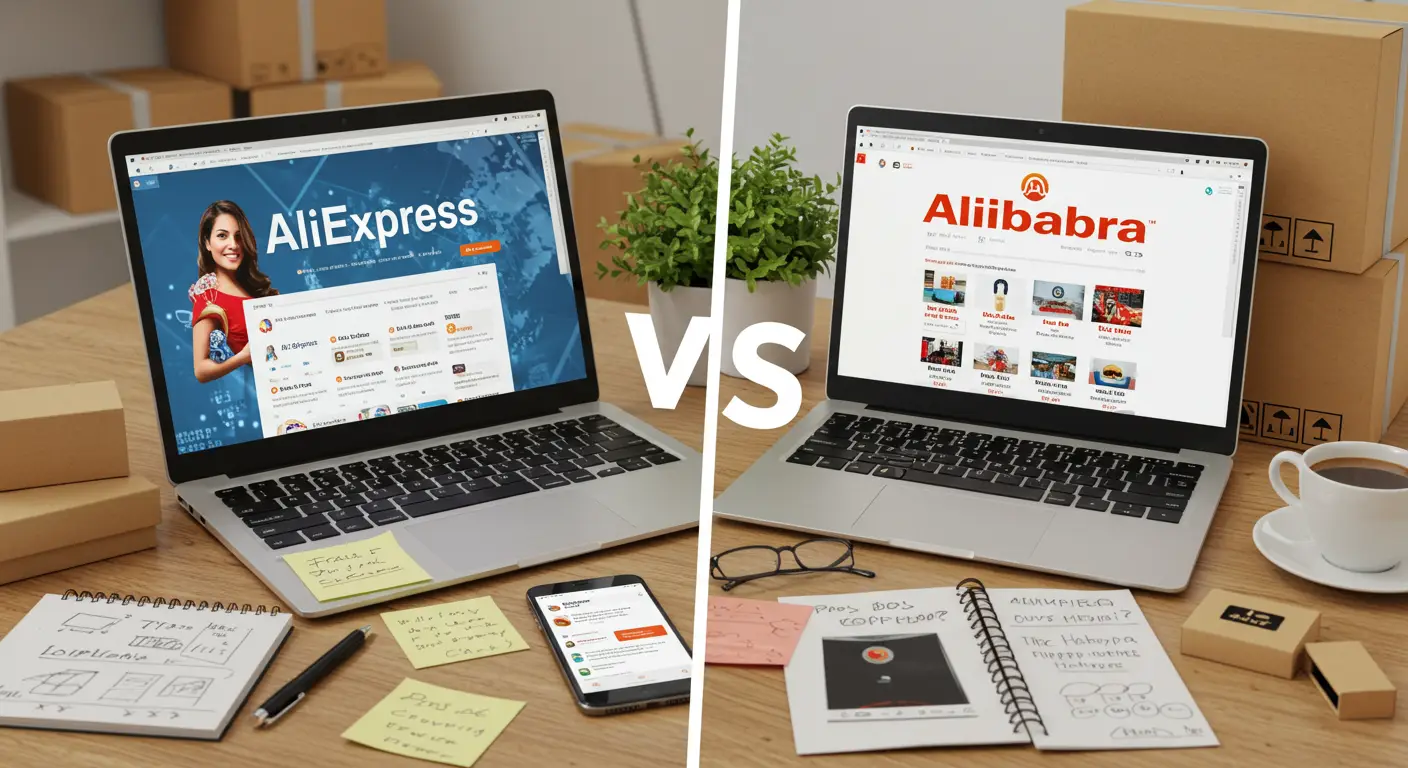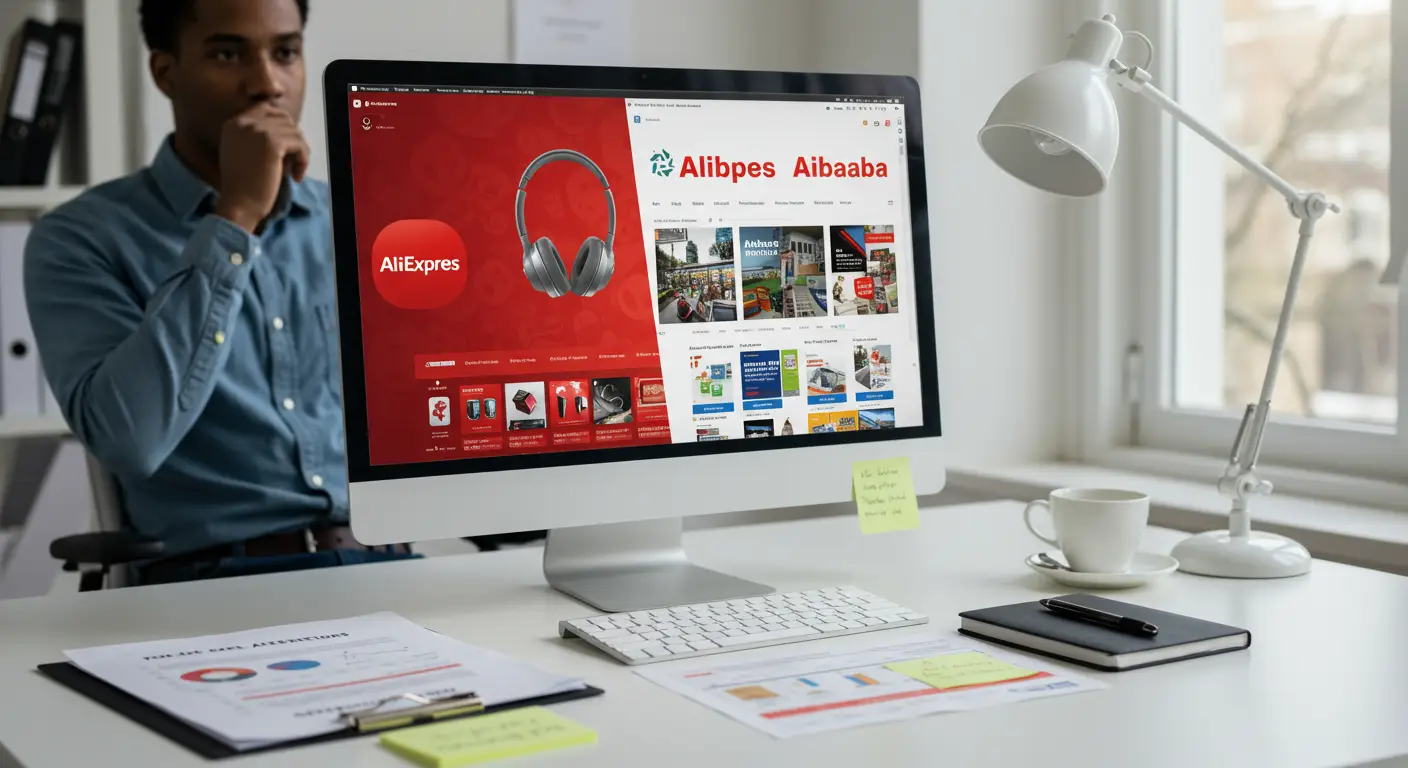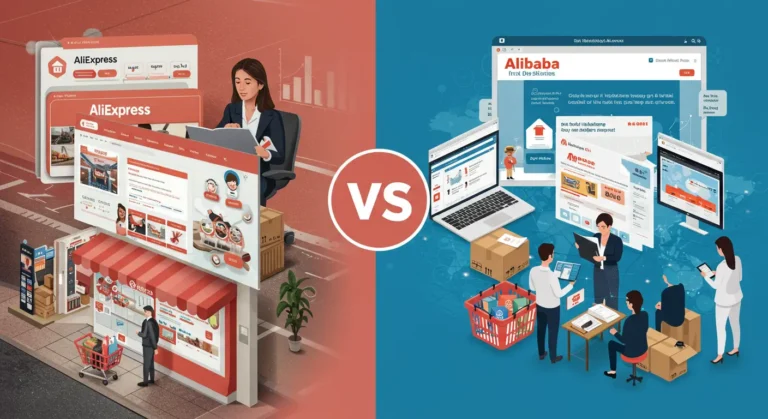AliExpress vs Alibaba: Key Differences for UK Online Shoppers
For UK residents keen on exploring global online marketplaces, understanding the differences between AliExpress and Alibaba is crucial. Both platforms are operated by the Alibaba Group and offer access to a vast range of products from international sellers, but they cater to very different types of buyers. With the rise in cross-border eCommerce, UK shoppers are increasingly turning to these platforms for everything from electronics to fashion. However, choosing the right site can impact your shopping experience, delivery times, and overall satisfaction.
Many UK shoppers are concerned about shipping options, customs duties, buyer protection, and minimum order quantities. While AliExpress is designed for individual consumers seeking single or small-quantity purchases, Alibaba primarily serves businesses interested in bulk buying. Knowing which platform aligns with your needs can help you avoid unexpected fees, long delivery times, or difficulties with returns. This guide will clarify the main differences, helping UK users make informed decisions when shopping online.
Curious whether AliExpress or Alibaba offers you the smarter shopping route? Before you fill your cart, unlock hidden UK discounts with our handpicked today’s best deals and see how much more you could save!
AliExpress vs Alibaba: Understanding the Key Differences for UK Buyers
What is the Difference Between Alibaba and AliExpress?
Alibaba and AliExpress are both major online marketplaces owned by the Alibaba Group, but they cater to very different types of buyers and purchasing needs. For shoppers in the UK, understanding these differences is crucial for making the right choice.- Alibaba is primarily a business-to-business (B2B) platform. It connects UK buyers with manufacturers and wholesalers, mostly from China and Asia, for bulk purchases and custom orders.
- AliExpress is a business-to-consumer (B2C) marketplace. It allows individual UK shoppers to buy single items or small quantities at retail prices, often with free or low-cost shipping.

Alibaba is ideal for UK businesses seeking to import products in large volumes, while AliExpress is tailored to individual consumers and small business owners who want to buy ready-made products in smaller amounts.
How is Alibaba Different?
Alibaba stands out due to its focus on bulk transactions, negotiation, and customisation:- Minimum Order Quantities (MOQs): Most Alibaba suppliers require buyers to purchase a minimum number of units, which can be anywhere from dozens to thousands.
- Customisation: UK buyers can request custom logos, packaging, or product modifications – a feature not typically available on AliExpress.
- Negotiation: Prices on Alibaba are often negotiable. UK buyers are expected to communicate with suppliers, request quotes, and discuss terms before placing an order.
- Payment Methods: Alibaba supports secure payment methods like Trade Assurance, but bank transfers and other business payment options are common.
- Lead Times: Products are usually made to order, so delivery times can be significantly longer than on AliExpress.
What is Special About AliExpress?
AliExpress offers unique advantages for UK shoppers looking for convenience and variety:- No Minimum Orders: You can buy a single item or just a few, making it perfect for personal use or testing products before bulk buying.
- Retail Prices: Prices are fixed and displayed up front, so there’s no need for negotiation.
- Buyer Protection: AliExpress provides a clear refund and dispute process, giving UK buyers peace of mind.
- Fast Shipping Options: Many sellers offer ePacket, AliExpress Standard Shipping, or even local UK warehouses for faster delivery.
- Wide Product Selection: From electronics to fashion, AliExpress caters to nearly every category imaginable.
Alibaba and AliExpress: Which is Cheaper?
Alibaba generally offers lower unit prices, especially for large orders, but UK buyers must consider additional costs such as shipping, customs duties, and VAT. AliExpress may have slightly higher per-unit prices, but these often include free or subsidised shipping and no minimum order.- Bulk Savings: Alibaba is cheaper for large-scale purchases due to wholesale pricing.
- Small Orders: AliExpress is more cost-effective for individual or low-quantity orders, as you avoid bulk shipping and customs complexities.
Alibaba vs AliExpress vs Temu: How Do They Compare?
Temu is a newer platform gaining popularity in the UK for its ultra-low prices and aggressive promotions. Here’s how the three compare:- Alibaba: Best for UK businesses importing in bulk, offering customisation and factory-direct prices.
- AliExpress: Suits individual UK shoppers and small businesses seeking variety, no MOQs, and buyer protection.
- Temu: Focuses on low-cost consumer goods with fast shipping and regular discounts, but with a smaller product range than AliExpress.
Alibaba vs AliExpress vs Amazon: What Should UK Buyers Know?
When comparing Alibaba, AliExpress, and Amazon UK:- Amazon UK: Offers local fulfilment, fast delivery, and easy returns, but often at higher prices.
- AliExpress: Provides a huge range of products at low prices, with longer shipping times but global reach.
- Alibaba: Ideal for UK businesses needing wholesale quantities and custom products, but with more complex import procedures.
UK buyers should weigh the trade-offs between price, delivery speed, product selection, and after-sales support.
Alibaba or AliExpress for Dropshipping?
Dropshipping is popular among UK entrepreneurs. Here’s how the two platforms compare:- AliExpress: Favoured for dropshipping due to its no-MOQ policy, wide product variety, and integration with UK-friendly dropshipping tools like Oberlo, DSers, and Shopify.
- Alibaba: Less suited for dropshipping, as suppliers focus on bulk orders and may not support direct-to-customer shipping for single units.
For UK dropshippers, AliExpress is generally the better choice, especially for testing products or scaling up quickly.
What is the Difference Between Alibaba and AliExpress Shopify?
Shopify is a leading eCommerce platform used by many UK businesses. The difference between Alibaba and AliExpress in the context of Shopify relates to how each integrates with dropshipping apps:- AliExpress + Shopify: Seamless integration with dropshipping apps allows UK store owners to import products, automate orders, and track shipments directly from AliExpress to their Shopify store.
- Alibaba + Shopify: Integration is less common. Alibaba is used for sourcing products in bulk, which are then stocked and shipped by the UK business, not directly to the customer.
For UK Shopify dropshipping, AliExpress is the standard choice due to its automation and ease of use.
Why is Alibaba More Expensive Than AliExpress?
UK buyers sometimes notice that Alibaba prices seem higher than AliExpress for similar products. This can be due to several factors:- Customisation Costs: Alibaba suppliers often include costs for custom branding, packaging, or product modifications.
- Shipping: Alibaba quotes usually exclude shipping, which can be substantial for large, heavy shipments to the UK.
- Quality: Alibaba suppliers may offer higher-quality or industrial-grade products for business buyers.
- Negotiation: Listed prices on Alibaba are starting points for negotiation and may decrease with larger orders.
AliExpress prices are retail and often include shipping, making them appear lower for small orders.
Alibaba and AliExpress Same Owner?
Both Alibaba and AliExpress are part of the Alibaba Group, a Chinese multinational conglomerate. This shared ownership ensures a similar level of platform security and technological infrastructure, but the two operate independently and target different markets.AliExpress vs Temu: Which is Better for UK Shoppers?
AliExpress and Temu both attract UK buyers looking for bargains, but there are key differences:- AliExpress: Larger product catalogue, longer track record, and more established buyer protection and dispute systems.
- Temu: Focuses on ultra-low prices, flash deals, and fast shipping, but with a smaller range and newer presence in the UK.
For UK shoppers, AliExpress offers greater choice and reliability, while Temu is best for those seeking the absolute lowest prices on select items.
AliExpress vs Taobao: What’s the Difference for UK Buyers?
Taobao is another Alibaba Group marketplace, but it primarily serves the Chinese domestic market. For UK buyers:- AliExpress: Designed for international customers, with English language support, international shipping, and buyer protection tailored for the UK.
- Taobao: Requires knowledge of Chinese, and international shipping is not always supported. UK buyers often need to use third-party agents to purchase from Taobao.
AliExpress is much more accessible and user-friendly for UK shoppers compared to Taobao.
What are the Pros and Cons of AliExpress?
AliExpress offers several advantages and drawbacks for UK buyers:Pros:
- Wide Variety: Millions of products across categories, from electronics to home goods.
- No MOQ: Buy as little as one item, ideal for personal use or small businesses.
- Competitive Prices: Often lower than UK high street or online retailers.
- Buyer Protection: Clear refund and dispute processes, with support in English.
- Free or Low-Cost Shipping: Many items ship for free or at low rates to the UK.
Cons:
- Longer Shipping Times: Standard delivery can take 2-6 weeks, though some items ship faster.
- Customs and VAT: UK buyers may be liable for import VAT and customs fees on orders over £135.
- Variable Quality: Product quality can vary, so choosing reputable sellers is important.
- Returns: Returning items can be costly and time-consuming, as returns often go back to China.

What is the Downside of Alibaba?
While Alibaba is a powerful sourcing tool for UK businesses, it has some disadvantages:- Complex Ordering: Requires negotiation, understanding of MOQs, and detailed communication with suppliers.
- Long Lead Times: Products are typically made to order, so production and shipping can take months.
- Import Duties: UK buyers are responsible for customs clearance, VAT, and duty payments.
- Risk of Scams: While Alibaba has Trade Assurance, there are occasional reports of unreliable suppliers or quality issues.
- Not Suited for Small Orders: MOQs and shipping costs make Alibaba unsuitable for most personal or low-volume purchases.
Seller Selection and Buyer Protection for UK Buyers
AliExpress and Alibaba both offer seller ratings, reviews, and verification badges. UK buyers should:- Check Seller Ratings: Choose sellers with high ratings and positive feedback, especially for high-value or bulk orders.
- Use Buyer Protection: Stick to Trade Assurance (Alibaba) or Buyer Protection (AliExpress) to safeguard your purchase.
- Review Return Policies: Understand each seller’s return and refund policy before ordering, especially for electronics or customised goods.
Shipping, Customs, and Delivery Times to the UK
AliExpress:- Standard Delivery: 2-6 weeks, with tracking available.
- Express Options: DHL, FedEx, and AliExpress Premium Shipping are available for faster delivery.
- Customs and VAT: Orders under £135 usually have VAT included at checkout. Orders above this threshold may incur additional customs duties upon arrival in the UK.
Alibaba:
- Lead Times: Production plus shipping can take 1-3 months, depending on order size and shipping method.
- Shipping Methods: Sea freight is common for large orders, while air freight is used for urgent shipments.
- Customs Clearance: UK buyers must arrange customs clearance and pay all applicable VAT and duties.
Returns and Dispute Resolution
AliExpress:- Easy Dispute Process: UK buyers can open disputes within the platform if items are not as described or do not arrive.
- Return Costs: Returns may require shipping items back to China at the buyer’s expense, unless the seller offers a UK-based return address.
Alibaba:
- Trade Assurance: Protects UK buyers against non-delivery or quality issues, but claims must be well documented.
- Negotiated Returns: Returns are typically negotiated directly with the supplier, which can be complex for UK buyers.




